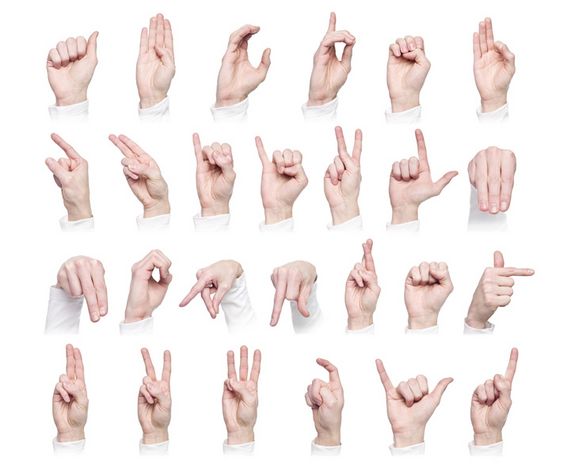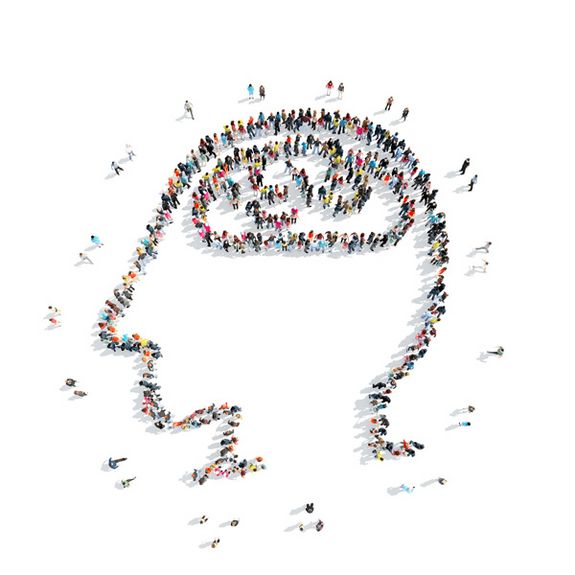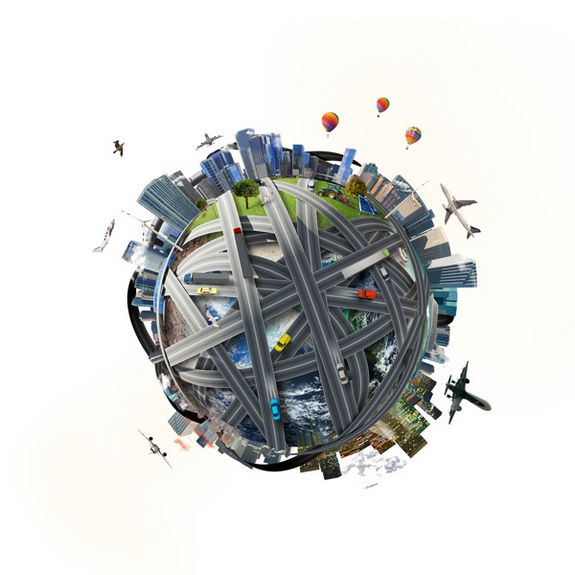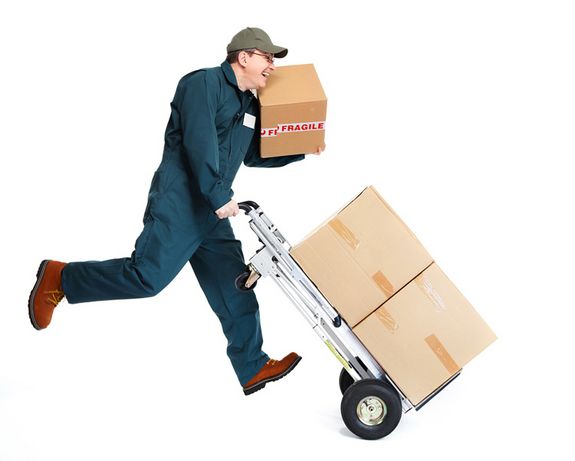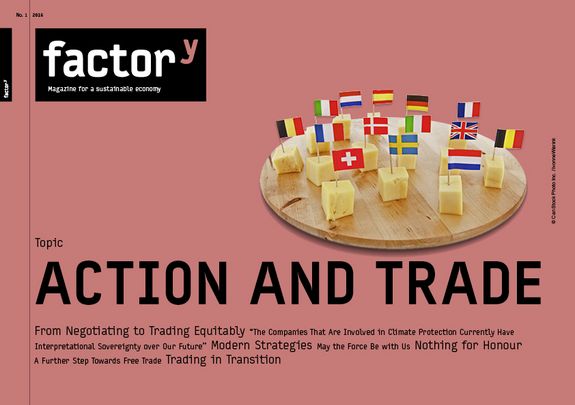Action and Trade
From Knowledge to Action
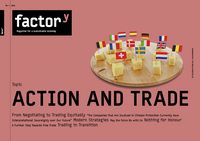
In German, the word Hand (meaning the human hand) is at the root of a wide range of words including ‘to act’ (Handeln), trade (Handel), to negotiate (verhandeln), fair trade and free trade. In every case, hands are involved, even when it comes to automatic stock trading. We take decisions with our brains, but it is the whole embodied individual who takes action. We act in a great variety of ways, but usually within the scope of rational, sensible behaviour – except when we act in an unreasonable way – and even in ways that can harm our own interests. We may not even realize at the moment when we act that we will eventually suffer the consequences of those unreasonable actions. At a later point, we may change our behaviour in order to rectify those negative consequences of our earlier behaviour. When people ask Thomas Jorberg, the spokesman for the board of directors of the GLS Bank, why there aren’t more people who choose an ecologically and socially oriented bank, why we don’t restructure our financial and economic systems, or why people are moved so little by the transformation process to seek more equality and less consumption of resources, says that “people either act out of necessity or because they have acquired insight”.
‘From Knowledge to Action’ is the title of a series of educational materials that were published by the Wuppertal Institute. With these resources, young people, for whom the acquisition of knowledge is a major part of everyday life, can obtain knowledge for action; they can become the agents to achieve change in culture. Of course, whether or not they will succeed, we do not know.
The Paris Agreement, a binding non-binding agreement for limiting global warming to an increase of 2ºC above preindustrial levels, is a successful step towards change. After 25 years of UN climate diplomacy, this agreement, which stipulates a contribution to climate protection from each country, has to be deemed a success both for the UN itself and for the world. Insight and knowledge have prevailed – and have painstakingly established a corridor for action. Whether the resulting actions are rational or not must be verified on a regular basis. It is hoped that competition will emerge for actions that will protect our environment. But the means for achieving this goal have not been specified and there will be numerous exceptions to the rules.
In his article ‘From Negotiating to Trading Equitably’, philosopher Bernd Draser explains why it is so difficult for minds and hands to work together. Dirk Messner, Chairman of the German Advisory Council on Global Change, is convinced that it is also possible to achieve this regardless of the Paris Agreement: “The prerogative of interpreting the future now lies with the companies involved in climate protection.” In ‘Modern Strategies’, Ilona Koglin comprehensively presents which tools can be used by people and societies in order to progress towards transformation. In ‘May the Force Be with Us’, Andres Friedrichsmeier investigates whether we are losing our autonomy and freedom of action when following the big data business model used by Google, Facebook and the like, or if it actually creates a chance for a democratic economy. With impressive portraits by the photographer Anja Weber, the article ‘Nothing for Honour’ shows that solidarity and helpfulness are generally part of human nature and that individuals as well as society benefit from this. Industry and economic policy want to achieve an entirely different transformation by means of so-called free trade agreements. In ‘A Further Step towards Free Trade’, Alessa Hartmann discusses whether free trade agreements are sustainable. Finally, Manfred Ronzheimer’s article ‘Trading in Transition’ is about the billion-euro business of the retail industry and online trade and ‘slow retail’ and its ecological and social implications. Those for whom the possibilities of trade and action seem too much to handle can always keep in mind my father’s old saying: “Those who do nothing make no mistakes.”
May this journal increase the power of your knowledge and lead you to choose the appropriate action and trade, or non-action and non-trade!
Ralf Bindel and the factory team
More articles to the topics of Trade, Action and Debate are not only online but in our factory-magazine Action and Trade which can be downloaded for free. This is as always finely illustrated and good readable on tablet-computers and screens – and contains all articles and images as even additional numbers and citations.
Themen
- The Domino Effect: the Mobility Transition as an Engine for the ‘Great Transformation’
- Cities Use the Space
- Decarbonization by 2030
- The fear of biting the hand that feeds you
- Where investing is a pleasure
- Why divestment is going to change the world
- A Robin Hood tax for climate protection
- May the Force Be with Us
- Modern Strategies
- The prerogative of interpreting the future now lies with the companies involved in climate protection”
- From Negotiating to Trading Equitably
- Can a donkey be tragic?
- Rethink rather than rebound: a sufficiency revolution must precede the efficiency revolution
- On Rebound, Prebound and Performance Gaps
- So Let Us Seize Power Then!
- With Common Property Against Political Failure
- So Let Us Seize Power Then!
- The Comforting Beauty of Failure
- “It Is Not Impossible at All.“
- Resource-light shopping
- Men Have Not Stopped Giving the Advantage to Women – So Far
- Toothpaste for Princesses and Soup for Pirates
- It is about equality
- A nice day
- Initiative instead of frustration
- The right ingredients
- Resilient for Life
- Not only, but also
- Appreciation – more please!
- Worth more than money
- Learning to value the value of goods
- Worth and Values
- The Transformative Power of Science
- Historically effective: How innovation and technology transform
- The Disappearance of Products
- Growing Older 101
- Columbus’ Egg
- It Works! In Theory at Least ...
- What If...?
- Analysing Separately – Thinking and Acting Together!
- Let’s Break Away from Determined Breaking Points
- More Gold in Waste than in Mines
- The art of separation
- Should you really DIY?
- The Aesthetics of Do-It-Yourself
- Standing on One’s Own Feet
- From the handaxe to desktop fabrication
- Using Shares to Survive the Crisis
- When Citizens participate
- Possess to Participate
- The Right Growth at the Right Time
- Gunter Pauli and Blue Economy
- When Sustainability Grows
- How we treat Growth
- Illusions about Growth

